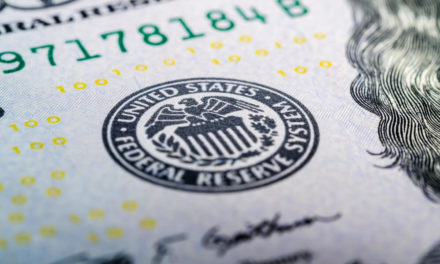About two-thirds of U.S. business economists expect the next recession to begin by the end of 2020, according to the latest poll of 51 forecasters released Monday by the National Association for Business Economics.
In all, about 56 percent of those polled say 2020, about 33 percent say 2021 or later, and about 10 percent think a recession will hit as early as 2019.
U.S. trade policy is the reason so many are predicting a downturn in the near future, with about 41 percent of respondents listing President Donald Trump’s tariffs as the driving factor behind a recession. About 18 percent cite rising interest rates from the Federal Reserve, and about 18 percent listed substantial stock market decline and volatility.
“Trade issues are clearly influencing panelists’ views,” said David Altig, the Federal Reserve Bank of Atlanta research director and NABE’s survey chair.
Economists are optimistic about the economy this year, with the country’s gross domestic product expected to hit 2.9 percent, up from 2.8 percent projected in the same survey in June. The estimate for 2019 remained steady at 2.7 percent.
Corporate tax reform was listed as the biggest potential driving force of a strong economy with 33 percent of respondents. About 27 percent listed stronger wage gains and about 10 percent said strong global growth.
Fifty-one percent of respondents said GDP growth threats are weighted on the downside while 20 percent lean up. The other 29 percent say current estimates are about right.
Federal Reserve policy makers raised their 2018 growth estimate to 3.1 percent from 2.8 percent, and raised their 2019 projection from 2.4 to 2.5 percent. The Fed also raised its benchmark interest rate to 2.25 percent last week, the third hike of the year with another hike projected for December.
Respondents projected the Fed will raise the rate three more times in 2019.




